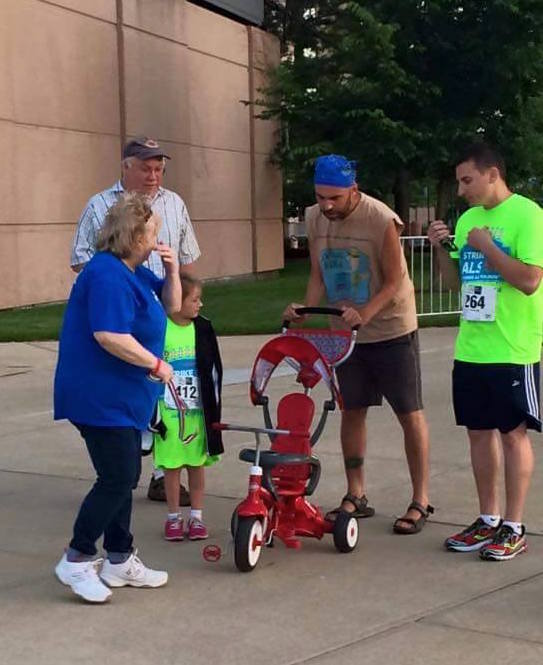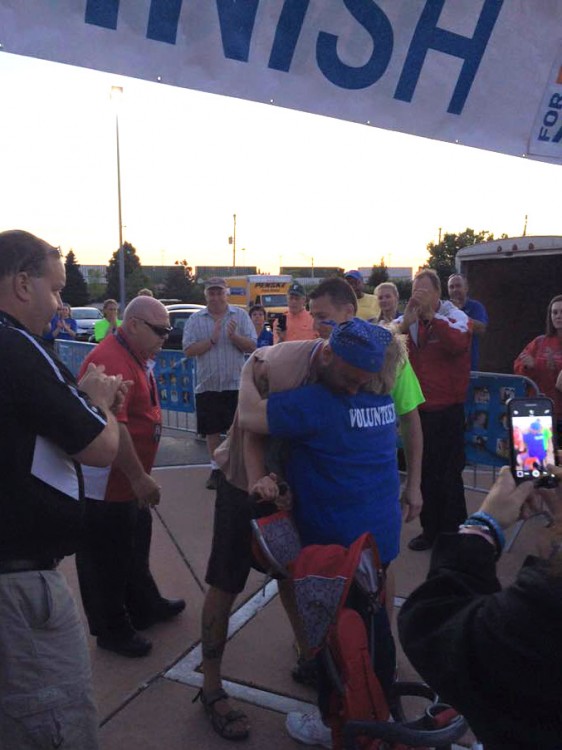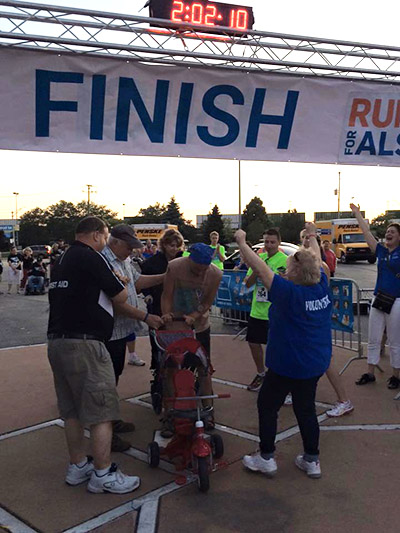Two months after his Amyotrophic lateral sclerosis (ALS) diagnosis in May 2013, Derek Hogg ran the Strike Out ALS 5k in Chicago. His time? Twenty-two minutes. Fast for a fit firefighter, and especially fast for a man with ALS, a disease that affects the nerve cells in the brain and the spinal cord, according to the ALS Association.
“When I first got diagnosed, I didn’t even know what ALS was,” Hogg told The Mighty. Jump forward two years, Hogg knows all about the condition, especially how it affects his body. His disease’s progression has made it difficult for him to walk without assistance or even hold his cellphone. Despite this, he wanted to continue the tradition of running a 5k in July that weaves through the Chicago White Sox parking lot and baseball field for the third year in a row. The Strike Out ALS 5k benefits the Les Turner ALS Foundation.
Hogg’s wife Holly and his doctors advised him against participating this year, worried he’d fall on the course. His loved ones suggested he use his motorized scooter to complete the 3.1 mile race.
But Hogg’s oldest son Paxton, 3, saw past his disease and encouraged him to continue the tradition by running the race. “If you think I can do it, I can do it,” Hogg recalls telling his son.

He started out the race pushing Paxton in a stroller, using it as support. A quarter of a mile through the race, Hogg realized he was the only one left at that point on the course. Even the people walking the route were long gone. “It was pretty barren. Just me and my son in the stroller,” Hogg told The Mighty. “He wanted to know… where did everybody go?”
Half a mile in, Hogg apologized to a race volunteer for his lack of speed. The volunteer assured him they would wait to take down the course until he finished. After an hour and one mile in, Hogg saw his dad and mother-in-law. They urged him to quit or at least sit down and rest.
“I kept my head down and said ‘Nope, I gotta finish,’” Hogg told The Mighty. “At this point my legs started to give out. I knew if I sat down I wasn’t getting back up.”
Hogg was confident he could finish the entire race, but a medic along the route urged him to make a turn to cut the distance and finish in the next half mile instead. Hogg knew he’d be on the course well into the night if he didn’t follow the medic’s advice.
As Hogg trudged onward, he felt his body was past its limit.
“I didnt look up. I was concentrated on one step at a time,” he told The Mighty. His concentration was so deep, he didn’t even notice the friends, family and strangers loudly cheering him on until he crossed the finish line.
Hogg knows he didn’t break any records running the 5k; it took him two hours to complete his course, but he hopes his determination will inspire other people to give their 110 percent.
“If you really put your best foot forward, you never know what the end result will be,” he said.


